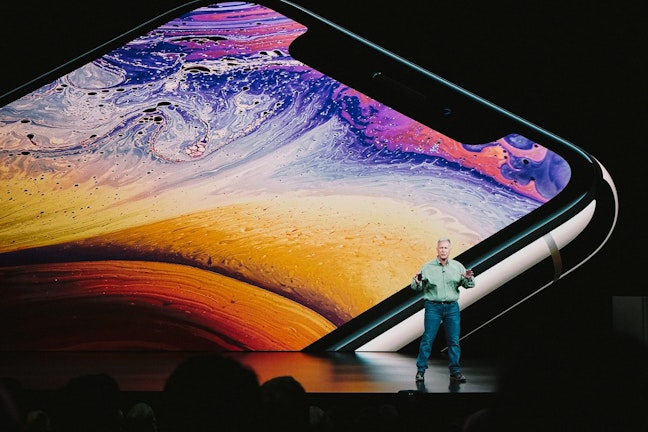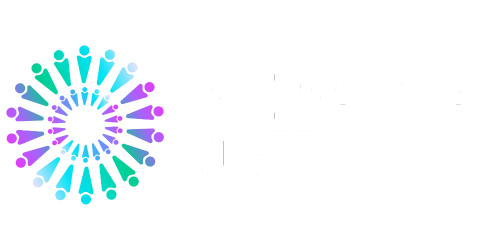Industry Insights: experts talk the evolution of event tech in 2023 and beyond
Post-pandemic, technology is more prevalent than ever in events. Covering everything from virtual event platforms to audio visual equipment, to the Metaverse and more, it's often essential for meeting audience expectations around event experiences and flexibility. But how can event organisers know which tech tools are worth the investment of time, money, and resource, what will keep audiences coming back, and how to put this tech to best use?
Ahead of International Confex 2023, held on 1st and 2nd March, we're digging into the major trends affecting events this year and beyond. In this article, we've asked four experts within the event technology space, who'll be joining us to speak at Confex, to share their advice for organisers on keeping up with evolving event tech.
Get the lowdown on event tech trendsTo take a deeper dive into the topic, register for Confex on 1st and 2nd March to attend insightful panels on all things tech, event trends, accessibility, and more.
What challenges does evolving event tech pose for event organisers?Implementing tech requires upskilling and resourceLearning to use technology takes time and effort, which often isn’t feasible with stretched teams. As Sophie Ahmed, SVP of Market Strategy at Hubilo acknowledges, despite there being more options available to eventprofs, “now that everything's opened back up, everyone's just gone back to the default position” when it comes to harnessing event tech. We're still tending to stick to what we know, rather than test new, unfamiliar tools.
Adam Parry, Co-founder of Event Tech Live, agrees that resource will be a blocker, adding that: “We’re at a point in the industry where we are still rebounding from the pandemic. There wasn't even really the infrastructure or people in place in the industry pre-pandemic to take on all this technology, so from an organiser’s perspective, they need to try and invest in people and structure to help implement it.”
Trying new tech can have big payoffs in the end: over the past few years companies have been developing technology to help support events much more smoothly and effectively, which could lead to wins around saving time and being able to focus on the experience. It's important, however, to establish your team's capacity to learn and utilise these tools before bringing in any additional tech. If you don't have the resource in your team, you'll need to procure additional support before you invest in the technology.
Hire Space Top Tip:Instead of bringing onboard a whole new team member, consider outsourcing event technologists from digital native companies who can fill the gaps. Hire Space's event management services allow for a range of support levels on tech and other areas of event delivery - just get in touch to find out how we can help your team.
Event tech comes with a costIt's likely that bringing on board additional or new tech will have an implication for budgets - though costs aren't necessarily going up as the tech improves. Companies will have to decide where the experience justifies the cost of the tools, and eventprofs should be prepared to argue the case for it where appropriate.
For instance, using wearable beacon technology to track how someone moves around the exhibition floor can help you to map out interests based on demographics and attendee types (buyers or sellers). This may have a sizeable upfront cost, but you'll be able to demonstrate which parts of the exhibition were most popular and what made certain stands work, so you can build out guidance for exhibitors for the next time, which may well win you new sponsors and business.
Ensuring a piece of technology works perfectly for an event can also often come at a considerable cost, says Vanessa Lovatt, Event Sector Expert. “There will be certain use cases within the event sector where the tech fits in beautifully, is repeatable, and works for every customer. There will also be another route which is a lot more bespoke and may be a lot more expensive.”
An example of using tech that has different tiers of custiomisation is event apps: these come in out-of-the-box models, as well as build your own and customisable apps, which will incur a higher cost but may provide substantially more flexibility. If you want an app that features basic information, such as the agenda of your event, an out-of-the-box solution will work fine, but if you want to add elements like matchmaking technology, these will largely cost extra.
As Vanessa says, it's rarely worth cutting corners if there's a case for investing in customisable tech: "If it's what that portfolio of events needs then it's the right thing to do for the customer." Have a read of our guide to meeting the experiential imperative in events for practical advice and statistics to help build your case for investing in tech tools.

Technology isn’t there to tick boxes; it should be used to make the content stronger. As Jonjo Glynn, Venues Director of White Light, told Hire Space: “Organisers forget sometimes that technology is just a tool. Whatever device you’re using, what's important is the connection of the content to that tool.” Even the most impressive tech won't have the intended impact if it comes at the cost of promoting your message.
Facebook IQ Live is an example of event tech complementing the event content well: rather than giving guests a run-of-the-mill conference, the exhibition presented the data gathered by its platform in real-world situations. Part of the exhibition floor was translated into a virtual shopping channel, where attendees could navigate the user journey in physical space. Activities like this, which combined data-collecting tech with physical experiences, led to 93% of attendees saying they'd gained valuable insights on how to use Facebook for business through the event.
Whatever tech you incorporate, make sure you know what you want your content to achieve - whether that’s getting across information, conveying a feeling, or just sharing an experience - and look for opportunities for tech to bring that to fruition. From showcasing your visions for the future through VR, to integrating your matchmaking with the Metaverse, there are plenty of opportunities to use technology to drive forwards your business objectives.
Find out more about opportunities for this at Confex on 1st and 2nd March, and in our complete guide to leveraging your event content to engage new audiences.

Tech isn't just for the showy side of events. Adam highlighted the opportunities presented by tech in streamlining day-to-day tasks, saying: “Ask yourself, can this piece of technology help me do a better job of my work and make me more efficient? As organisers we essentially charge for our time, and the more efficient you can be, the healthier you are as a business.”
Making the most of behind-the-scenes tech could look like using a registration tool that integrates with your event management software (or the platform you use to handle on day check-in and badging) so that you don’t have to worry about uploading csv's for attendees who register on the day. This should also integrate with your CRM so that you have a real-time updated list of attendees at any time.
You can also use the data collected at registration to personalise pre- and post-event communications: for instance, if attendees say that they're interested in event tech, you can send them emails about event tech panels, speaker announcements, and exclusive networking opportunities. This also helps to segment your audience more effectively for post-event comms, so you can send out targeted calls-to-action with less effort.
Bring in expert back-upEfficiency is everything in events, particularly when time and resources are stretched. As well as using tech to streamline your processes, draft in the professionals at Hire Space 360 for additional expert hands when and where you need them. We can help with everything from venue sourcing to on-the-day delivery, and manage procurement and contracting so you can focus on what matters: the experience.
Form partnerships with event tech providersAll contributors mentioned the importance of working with event tech experts - after all, it’s their bread and butter so they’re likely more knowledgeable about its opportunities and limitations than most of us can ever be. A top tip is to choose a supplier that provides hands-on support if you need it, rather than getting a self-service platform where support comes at an extra cost.
Adam’s advice for event organisers is to find an event tech provider that’s focused on your market sector, and who can support you with insider insights and expertise at your next event. That partnership is founded on the basis of a mutual understanding of the market, and its unique pain points, so solutions will be more tailored to your target market.
Vanessa expanded on this, advising that once the providers know what your goals are, they’ll be able to make tweaks and recommendations to deliver the best results. “The closer you bring the provider of that particular tool into your planning cycle, the better. Tell them your event goals, tell them your event challenges, tell them what success looks like for you.” Then they can show you specific tech features that will help you meet these goals.
Ongoing partnerships are particularly valuable: if you find a tech provider that aligns with your objectives and supports your business goals, hold onto them! You'll be able to develop the way you use the tech from event to event, and use your partners' knowledge of it to really maximise its benefits to your event programme.

As Sophie told us, working with event tech providers also means you can benefit from their data collection capabilities and gain useful insights from your event. It’s about thinking one step ahead and planning the insights to take forward to your next event, she noted: “Is there something you can use next time when you're planning your floor to give you better flow, and more monetisation?”
Make sure to plan the data points you’ll want to look at before the event, so that you're prepared to capture them and can learn from them going forwards. What route did people take around your exhibition? Where was their attention most focused in your content sessions? This data can be used to encourage sponsorship, refine value offering, and determine where to position branding, among other factors. Find out more about collecting data and measuring engagement in our ultimate guide to hybrid events.
Where will event tech head in 2023 and beyond?As we’ve explored in previous articles, event tech is accelerating at a rate we haven’t seen previously. You can dive deeper into this in our article on what the future of event tech holds, and don't miss our panel on evolving event trends at Confex this year!
Data will become more and more in demandAside from the big and bold new advances in projection, VR, AR, and content capture, most of the contributors highlighted data collection as the key focus of the next few years. A huge amount of data is often already collected on-site, through check-ins, badge-scanning, and wearable tech, and through online processes such as sign-ups, registration, and user journeys at virtual events, but there's a huge amount more to tap into it.
Adam framed the focus of the next few years as being around not only the collecting of data, but its representation: “I think one of the big trends that we'll see is data visualisation. Everybody wants access to data, everybody wants data, but we’re relatively in the dark about how to actually make any sense of things as basic as tracking year-on-year registration and tickets sales.”
“As that technology becomes more tactile and more designer-led, it'll just become ubiquitous, which will be a step change for organisers.” This will allow organisers to present data back to their clients and even attendees in ways which make sense, and encourage understanding of attendee behaviour.
This is something that will generally require external tools, whether that's a platform that allows you to build out your own reports, or a partner who'll create designed materials for you. As data becomes increasingly important in shaping event decisions, we'll need to be able to represent the information it tells us to sponsors, clients, and other stakeholders.

After the past couple of years, in which we’ve seen the proliferation of different hybrid event models of events, audience expectations have evolved to expect that content they can come back to time and again. As Vanessa said, “We want to watch content on-demand, and be able to browse and scroll. We should be looking at how TV and streaming services are working for inspiration here - this is a huge opportunity for the future of events.”
Indeed, flexibility isn't just a nice-to-have now: it may make the difference in people choosing to attend your event - or being able to. Check out our guide to leveraging your event content for more on making your event go further.
Key Takeaway:Your event doesn't just exist for a few hours - if you make it a flexible, on-demand experience, you'll be able to tap into whole new segments of your audience. Check out our guide to leveraging your event content for more on making your event go further.
“There is no normal”Experimentation, constant iteration, and evolving understanding of audience behaviour will lead to “products that really are in line with what the market needs,” according to Sophie. And Jonjo observed that we’ve had to “break an existing formula” with how we run events, and how the tech shapes and reflects data at these.
This means that the next few years will be shaped by trialling new tech - whether that’s the Metaverse, artificial match-making, or in-venue tech that shifts experiences up a gear. Evaluate what’s important to your client’s business: innovating and being at the forefront of the curve, or gathering evidence and doing one thing really well to advance your goals.
That might be making your hybrid events as strong as possible, or implementing a small aspect of VR to gauge the reactions of attendees before you invest heavily in it. As Vanessa told us, "there is no normal now", and we should embrace the opportunities ahead, but it can be hard to know where to focus your energy. According to Jonjo, the key is to find tech that “enhances”, rather than overwhelms the event, and identify opportunities to make your content go further.
Let us help:We know it can be daunting to explore the world of emerging tech, but the digital native team at Hire Space 360 are on hand to find the best tech suppliers and more for your programmes. Get in touch to find out more about how we can help to take your events to new levels.
The rise of AI?When it comes to one of the world’s biggest current trends - Artificial Intelligence - there can be feelings of unease regarding how this applies to events. How will this affect the work we do, and will it reduce the importance of humans in creating events?
Sophie shared her reassurances with fellow event professionals, saying: "What we'll see is more analytics and more understanding around the behaviours of the customers so we can take key content and distribute it to different personas. I think AI will come in big time there but we have to use it to help us and enhance us but not let it overwhelm us."
AI in matchmaking and networking at events is also likely to become more prevalent in events. However, this is not an all-in-one solution. "It doesn't replace the speaker research, ICP research, customer research - it’s there to sanity check it and to provide additional insights like matchmaking,” says Sophie. And, as we've covered, make sure they integrate with various other tools and provide other insights to make sure they’re giving you valuable data.

When it comes to exploring the future of event tech, there's there's a huge amount we can learn from others in the industry. Sophie, Adam, and Jonjo will be joining Hire Space on the Let’s Do London stage at International Confex on 1st March, at the Excel Centre, to discuss event trends and the place of tech in 2023 and beyond.
Don't miss the conversation: join us for what promises to be an insightful series of panels by registering below today!
About the speakersSophie Ahmed, SVP of Marketing Strategy, Hubilo
With 24 + years in global events and media, Sophie has recently developed a strong interest in event tech and the power technology has to enhance the event offering. She was co-founder and previous CEO of The Virtual Events Institute.
Jonjo Glynn, Venues Director, White Light Ltd
Jonjo has extensive experience across the Audio Visual sector specialising in conferencing and events for high profile clients. As White Light’s Venue Director, he is responsible for bringing high end production in-house to the company's portfolio of managed venues as well as overseeing event operations in some of London’s most iconic venues.
Vanessa Lovatt, Event Sector Expert
Vanessa is an established digital media professional with over a decade of experience in building engaged digital communities and 18 years in events, webinars and digital events.
Adam Parry, Co-founder, Event Tech Live
Adam Parry is the editor of eventindustrynews.com, a leading online publication covering the latest news and trends in the event industry. With over a decade of experience and passion for all things events, Adam has established himself as a top thought leader in the field, providing insightful commentary and analysis on the latest developments in the industry.
